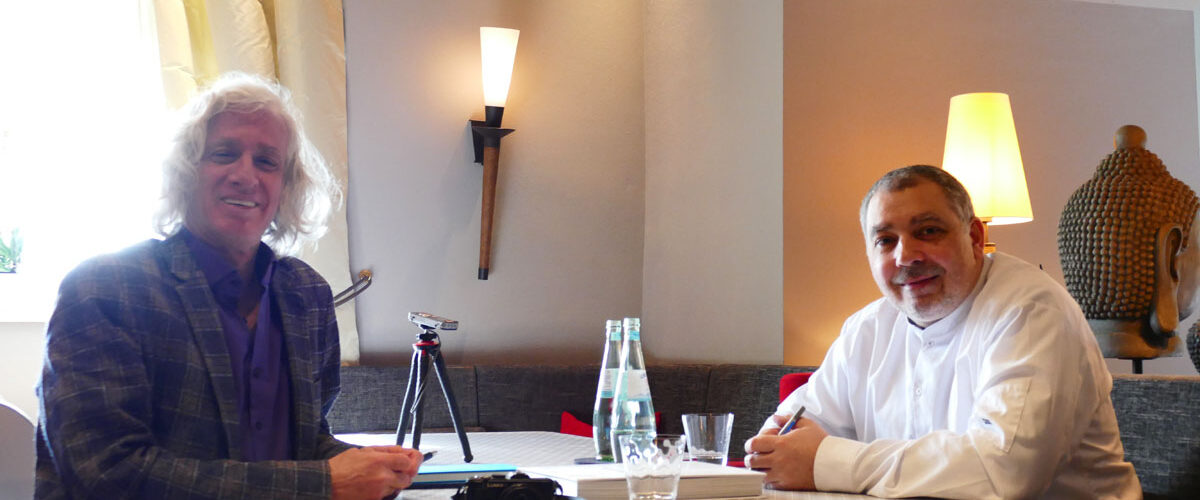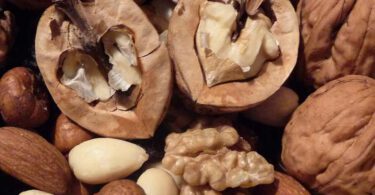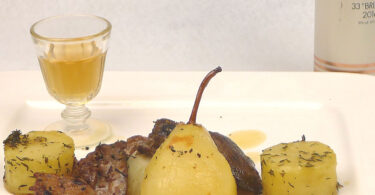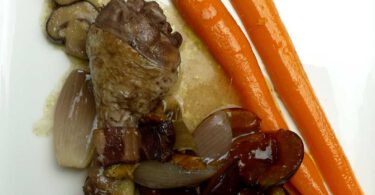MG: On 30 December 1780 Wolfgang Amadeus Mozart writes to his father:
Now I ask for a swift answer. Now I must close, I have to write head over heels everything has already been composed, but not yet written …
I don’t want to compare you with Mozart, but it is said that he already had his pieces in his head and only had to put them on paper.
An interesting theory.
Mentally add ingredients, smells, flavours and presentation to a complete
composition, which then only needs to be realised?
Do you have an expanded dimension of culinary thinking?
CB: Yes, you have to have that, you have to master it mentally. At the beginning of my career, I did extensive research and experiments, there were also crazy things, when you’re young you do things like that.
The resources are no longer there these days, you have to think sustainably, I don’t produce anything for the waste bin.
With sovereignty and experience I first put things together mentally, intuition also helps. People often ask me:
“Mr Bau, you cook Japanese food, did you learn it from a great chef?”
I always say that I didn’t learn that, but I understood the philosophy. I’ve visited countless Japanese restaurants, talked to many Japanese chefs, I’ve absorbed these ideas. Everything else I mastered intuitively.
Just put a few Japanese ingredients here on the table for me, for example miso, Japanese citrus fruits like yuzu, sudachi or mikan, a bottle of soy sauce and a fish. Intuitively I will make you something out of it, I can’t describe it, it comes from the gut. The creative process begins in the mind, age and aplomb naturally help me to realise it. When the idea has matured in my head, I go into the kitchen and talk to my cooks. Without knowing what it is basically about, they prepare the various components. Finally, I put the building blocks together.
The “aha” experience is always amazing. The composition is then tweaked until the idea crystallises. Different regulators are applied, what needs to be forced, what needs to be cut back, how should the cooking be handled? This process can take two, three or four weeks. In the end, a new dish is created that can be served to the guests.
MG: Do you sometimes need solitude to be calm and reflect?
CB: Solitude is perhaps the wrong word, of course I need peace and silence sometimes.
We live in a busy time.
In the morning I open the restaurant, the delivery men and the cooks arrive, I check the goods and give the first instructions, always interrupted by phone calls, finally I stand at the oven and put the sauces on, in between conversations with customers, the press or the staff, the schedule is tight. Often the day ends around 1:30 am.
You are constantly challenged, mentally and physically, which is detrimental to your own creativity.
You have to allow yourself rest periods to find yourself, to rethink your strategies, to simply switch off. To cook at this level, I need clear thoughts, rest is an important factor.
We master 20 employees, in the past I was immediately available for every employee.
That is no longer possible today.
My daily schedule is many times higher than that of my colleagues.
I want to be a leading example.
But sometimes I have to protect myself, I can’t always be there for everyone. You have to respect that.
MG: You have children, how do you explain the meaning of life to them?
CB: The meaning of life? To have children of your own, to be happy. To give the children attention, support and a background.
I didn’t have such a life myself, my mother was overwhelmed with the situation.
Of course, there were also good moments in my childhood and youth.
We went to the football field or biked around on scooters, we didn’t hang out in front of the TV.
We weren’t multimedia-driven, on the other hand, there was never anything there at the time.
When the class went to the camp, I stayed at home, there was no money for that.
If you decide to have children, you also have to stand behind that decision, offer the child something.
![[:de]Grandgourmand, Travel, Food, Lifestyle[:]](https://grandgourmand.de/wp-content/uploads/2023/01/logo_23_1-1.png)




